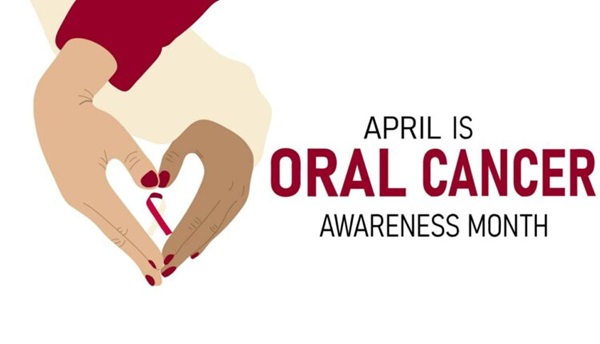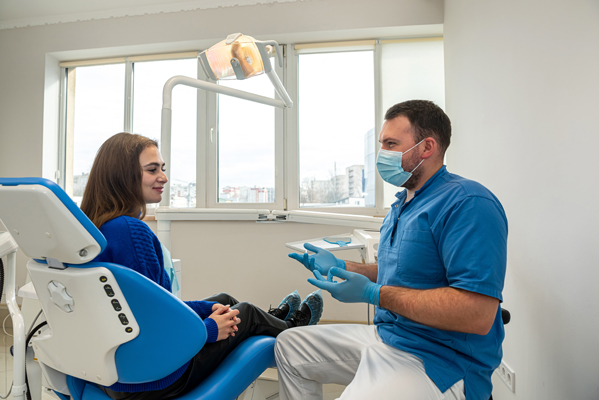 April marks Oral Cancer Awareness Month, a time dedicated to raising awareness about this often-overlooked disease. Oral cancer can affect anyone, regardless of age, gender, or lifestyle, making it essential to understand the risks and symptoms. At Sammamish Dental Center we are committed to empowering our community with early detection and prevention strategies to protect our patients' oral health. Let's shed some light on oral cancer and the steps you can take to reduce your risk.
April marks Oral Cancer Awareness Month, a time dedicated to raising awareness about this often-overlooked disease. Oral cancer can affect anyone, regardless of age, gender, or lifestyle, making it essential to understand the risks and symptoms. At Sammamish Dental Center we are committed to empowering our community with early detection and prevention strategies to protect our patients' oral health. Let's shed some light on oral cancer and the steps you can take to reduce your risk.
Understanding Oral Cancer:
'Oral cancer' refers to cancer that develops in any part of the mouth, including the lips, tongue, cheeks, floor of the mouth, hard and soft palate, sinuses, throat (pharynx), and voice box (larynx).
Signs and Symptoms:
Knowing the signs and symptoms of oral cancer can facilitate early detection. Common indicators include:
- Persistent mouth sores that do not heal
- Red or white patches in the mouth
- Unexplained bleeding in the mouth
- Persistent sore throat or hoarseness
- Difficulty chewing, swallowing, or speaking
- Swelling or lumps in the mouth or neck
- Thickening in the cheek or neck
- Numbness or pain the mouth or lips
- Changes in the fit of dentures or oral appliances
If you experience any of these symptoms for more than two weeks, it's essential to see your dentist or healthcare provider for a thorough evaluation.
Early Detection is crucial for successful treatment of oral cancer. Unfortunately, oral cancer often goes unnoticed in its early stages, leading to delayed diagnosis and more advanced disease. That's why oral cancer screenings are vital, especially for individuals at higher risk.
Risk Factors:
While anyone can develop oral cancer, certain factors may increase your risk, including:
- Tobacco use: Smoking cigarettes, cigars, pipes, vaping, or using smokeless tobacco significantly increases the risk of developing oral cancer.
- Heavy alcohol use: Excessive alcohol consumption, especially when combined with tobacco use, raises the risk of oral cancer.
- HPV infection: certain strains of the human papillomavirus (HPV) have been linked to an increased risk of oral cancer.
- Sub exposure: Prolonged exposure to sunlight increases the risk of lip cancer.
- Poor oral hygiene: Neglecting oral hygiene practices may contribute to the development of oral cancer.
- Family history: A family history of oral cancer may increase the risk.
Prevention:
While certain risk factors such as genetics cannot be changed, there are proactive steps you can take to reduce your risk of oral cancer.
- Quit tobacco: If you smoke, vape, or use tobacco products, quitting is the single most effective way to reduce your risk of oral cancer.
- Limit alcohol consumption: Moderating your alcohol intake can help lower your risk of oral cancer.
- Practice sun safety: Wear lip balm with SPF, wear hats, and seek shade to protect against lip cancer.
- Maintain good oral hygiene: Brush and floss daily. Visit your dentist for regular check-ups and cleanings. Oral cancer screenings are part of your regular dental exams.
- Get vaccinated: HPV vaccination can reduce the risk of oral cancer associated with certain HPV strains.
- Maintain a healthy diet: Eating a balanced diet rich in fruits and vegetables that are high in antioxidants and vitamins can boost your immune system and protect against cancerous cell growth.
- Know the signs: Be vigilant about any changes or abnormalities in your mouth, lips, and throat including sores, lumps, and persistent discomfort. Seek prompt medical attention if you notice anything unusual.
As we observe Oral Cancer Awareness Month, let's commit to prioritizing our oral health and being proactive about oral cancer prevention and detection. By understanding the risks, signs and symptoms, and prevention strategies, we can work towards reducing the impact of oral cancer on our communities and our loved ones.
Contact us Today!
Remember that early detection saves lives. If you notice any signs or symptoms of oral cancer or have concerns about your oral health, don't hesitate to contact us at Sammamish Dental Center. Dr. Goharkhay is committed to supporting your oral health and empowering you to take proactive choices to protect your health and well-being.
Request an appointment or call Sammamish Dental Center at (425) 340-3113 for an appointment in our Issaquah office.
Related Posts
Dental bonding is a minimally invasive way to enhance or repair the smile. Whether the issue is staining or a minor crack, bonding can be a quick and effective way to address it. Learning more about this common dental service can help you determine whether it is the best option for restoring your smile. Dental bonding…
Invisalign® is a fast way to straighten teeth, using clear, removable trays. However, smoking can negatively impact patient comfort and aligner appearance throughout treatment. It can even prolong treatment times. Learning more about how smoking can affect Invisalign treatment can help motivate patients to limit or quit tobacco altogether.Smoking tobacco can reduce the efficacy and…
A dental bridge is a tooth replacement option that does not require incisions to be made into the gums. However, there are many different types of dental bridges, and finding the perfect one can feel overwhelming. While your dentist will usually recommend what they think is best, it can be helpful to know the available…
A dental bridge is a reliable and effective solution for replacing a single missing tooth. Losing a tooth can impact a smile's functionality and appearance, but this treatment restores those elements with ease. A dental bridge enhances oral health and confidence by filling the gap left by a missing tooth.A dental bridge replaces a missing…


